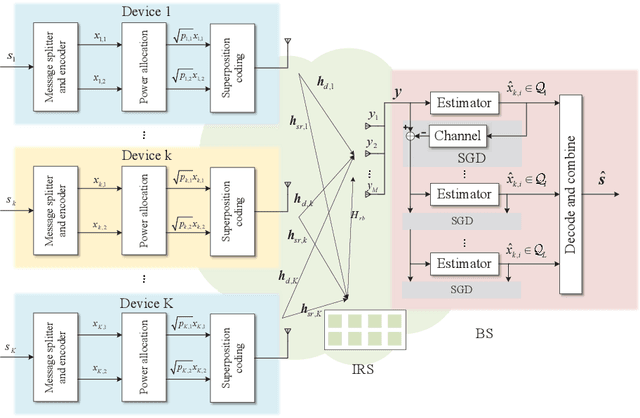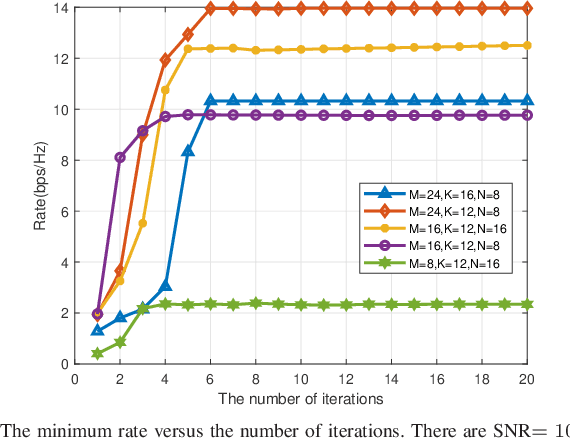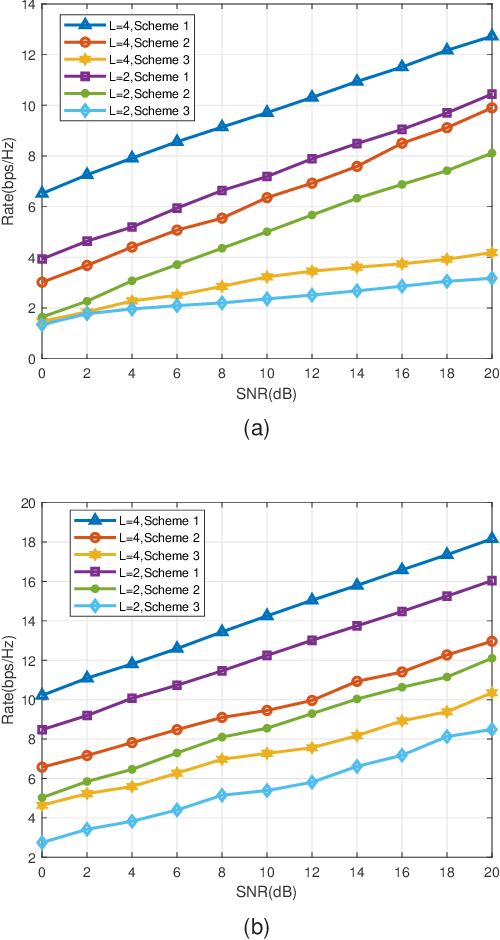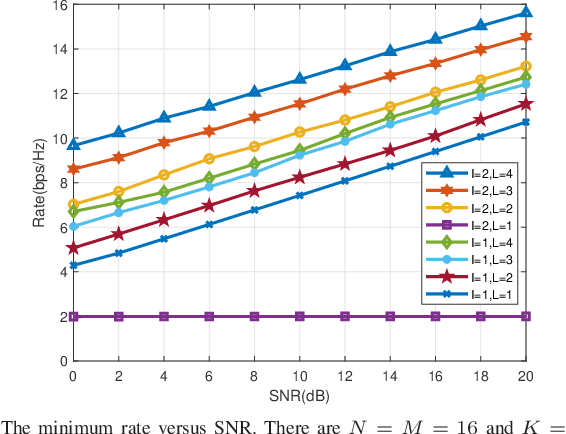Fairness Optimization for Intelligent Reflecting Surface Aided Uplink Rate-Splitting Multiple Access
Paper and Code
Mar 15, 2024



This paper studies the fair transmission design for an intelligent reflecting surface (IRS) aided rate-splitting multiple access (RSMA). IRS is used to establish a good signal propagation environment and enhance the RSMA transmission performance. The fair rate adaption problem is constructed as a max-min optimization problem. To solve the optimization problem, we adopt an alternative optimization (AO) algorithm to optimize the power allocation, beamforming, and decoding order, respectively. A generalized power iteration (GPI) method is proposed to optimize the receive beamforming, which can improve the minimum rate of devices and reduce the optimization complexity. At the base station (BS), a successive group decoding (SGD) algorithm is proposed to tackle the uplink signal estimation, which trades off the fairness and complexity of decoding. At the same time, we also consider robust communication with imperfect channel state information at the transmitter (CSIT), which studies robust optimization by using lower bound expressions on the expected data rates. Extensive numerical results show that the proposed optimization algorithm can significantly improve the performance of fairness. It also provides reliable results for uplink communication with imperfect CSIT.
 Add to Chrome
Add to Chrome Add to Firefox
Add to Firefox Add to Edge
Add to Edge